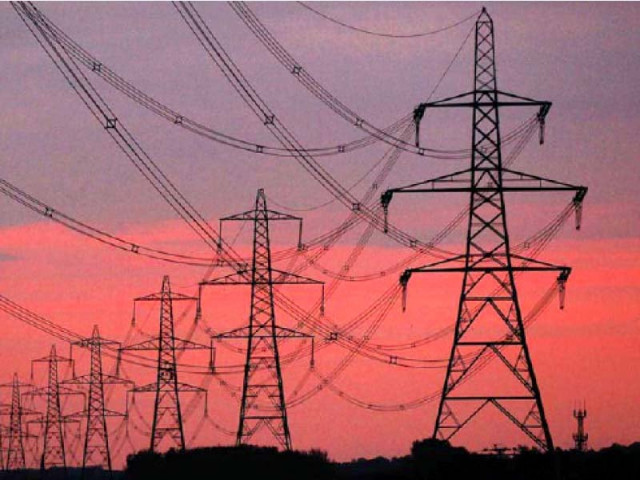Domestic consumers receive electric shock
Govt jacks up power tariff by Rs1.95; minister blames PML-N govt for leaving behind ‘landmines’ of capacity payments

The Pakistan Tehreek-e-Insaf (PTI) government announced on Thursday Rs1.95 hike in the power tariff, which it blamed on the agreements made by the previous government with “bad-intentions and corrupt practices”.
At a joint press conference with Planning Minister Asad Umar and Special Assistant to Prime Minister on Power Tabish Gauhar, Energy Minister Omer Ayub Khan said the government had paid Rs473 billion subsidy to the power sector last year despite economic crunch and the Covid-19 pandemic.
The minister said that that previous government intentionally installed power plants based on imported fuel, causing a flight of $6.5 billion foreign exchange. “The agreements signed by the previous government in the power sector were based on bad intentions and corrupt practices,” he told reporters.
“Due to these agreements, the increase in electricity tariff in the one year alone (2019-20), on account of compulsory capacity payments, would have been Rs2.18 per unit but the present government decided to increase the rate by Rs1.95 per unit only in 2021,” he said.
The minister said that the PTI government inherited from the previous Pakistan Muslim League-Nawaz (PML-N) government an unsustainable level of capacity payments. “These are land mines that the previous government gifted our nation” he said.
The minister said that the annual capacity payment to the Independent Power Producers (IPPs) was Rs185 billion in 2013, Rs468 billion in 2018, Rs642 billion in 2019; Rs860 billion in 2020, adding that it would reach Rs1,455 billion in 2023.
Power breakdown
Khan said that the major reasons for the recent power breakdown were human error, as well as technical. According to the energy minister after a preliminary investigation, six to seven officers and officials had been suspended.
“A number of high-powered investigating committees of NTDC [National Transmission & Despatch Company], NEPRA [National Electric Power Regulatory Authority] and the [energy] ministry have been constituted to look into the underlying causes,” he said.
“The final report [of the investigation committees] will be submitted to the Standing Committee of the National Assembly on Power, and also shared with the media, the minister told reporters. Responding to a question, the minister ruled out the possibility of reducing circular debt to zero.
Speaking on the occasion, Gauhar, the special assistant to prime minister on power, highlighted the key initiatives undertaken by the government to improve the power sector and reduce the flow of circular debt.
He said talks to convert the memoranda of understanding (MOUs) with over 50 IPPs into final binding contracts were in the final stage which would reduce the burden on the sector by more than Rs800 billion over the next 20 years. He added the government would make payment of Rs 450 billion to IPPs.
“Along with an even greater reduction in the rate of return on the government's own power plants, we expect a total reduction of Rs1 to 2 per unit in the coming years,” he, said, adding that all of these agreements, and payments thereunder, would strictly be in accordance with the law and regulations.
“The government's recently announced industrial tariff package to boost power demand has shown very encouraging results in the first couple of months and we expect to see continued progress in the coming days,” the special assistant said.
According to Gauhar, the CCOE has also decided to impose a moratorium on gas supply to captive power units, and incentivise them to migrate back to the national power grid. “All pending new industrial connections are being expedited by the Discos,” he added.
The government has already retired almost 50% of the old and inefficient government-owned power plants to reduce their burden on the consumer tariff, he said.
He said that the federal government intended to work closely with the provincial governments to reduce the burden of electricity theft and improving recoveries in their respective jurisdictions, beside introducing private sector participation and mindset at the board and management levels.
Tabish Gauhar added that the monopoly of DISCOs will end in the next two to three years and, in the first phase, the bulk consumers would be given a "choice of supplier" via an electricity commodity exchange, which is under implementation.
On the occasion, Asad Umar said that the PTI government inherited issues in the energy sector when it came into power. He also said that the government was committed to take action against those involved in petrol crisis. He added that a report had been submitted to cabinet in this regard.
The minister claimed that the economy was on right track now, as he highlighted that there had been continuous improvement in economic indicators. He said that there was increase in exports by 14% during December 2020 besides the improvement in industrial production.
The minister admitted increase in prices of sugar but said the government had allowed import of sugar to stabilise the prices.



















COMMENTS
Comments are moderated and generally will be posted if they are on-topic and not abusive.
For more information, please see our Comments FAQ